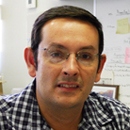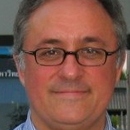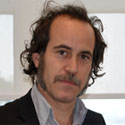Advisory Board and Editors Developmental Biology

Fabio TS Nogueira
Associate professor of Plant Molecular Biology and coordinator of the graduate program Plant Cell and Molecular Biology, University of Sao Paulo, Brazil. President, Institutional Biosafety Committee, University of Sao Paulo; Past President, Environmental Ethics in Research Committee, University of Sao Paulo.

Rodrigo Nunes-da-Fonseca
Associate Professor at the Center for Ecology and Socio-Environmental Development of Macaé, (NUPEM), Federal University of Rio de Janeiro (UFRJ-Macaé). Affiliate Member of the Brazilian Academy of Sciences (2017-2021). Scientist of Our State at FAPERJ (2019-nowadays), PhD (2008) and Postdoctoral studies (2009) in Functional Genomics and Evolutionary Developmental Biology (Evo-Devo) at the University of Cologne, Germany.
Published more than 85 articles in specialized journals with more than 3500 citations (Google Scholar-Fator H = 24). He serves as a reviewer for several international journals (NAR, Cell Reports, Dev. Gen Evol, Dev. Biol, FEBS J, Plos One, Gene, among others) particularly in the evolutionary genetics of arthropod development.

Isabel M Palacios
University at Madrid, Spain; PhD at EMBL Germany; Postdoc at the Gurdon Institute, Cambridge, UK; Group Leader as a Royal Society University Research Fellow and currently as a University Senior Research Fellow, Cambridge, UK. Also a Fellow of St John's College, Cambridge, UK

Anurag N Paranjape
Passionate about understanding the mechanisms governing cancer metastasis with a hope of finding new targetable pathways. Have worked on breast cancer stem cells, EMT, prostate cancer stem cells, breast cancer brain metastasis, and blood-brain barriers.

Mason Posner
Professor and former Chairperson of Biology and Toxicology at Ashland University in Ohio. My research focuses on the evolution, physiology and biochemistry of alpha crystallins, a group of small heat shock proteins that protect cells against stress and are implicated in numerous diseases such as lens cataracts, Parkinsons, Alzheimers and cancer. My undergraduate research students and I use the zebrafish and other fish species as models to investigate alpha crystallin function. Our work involves qPCR to measure gene expression, CRISPR gene editing, proteomics, transcriptomics, promoter analysis and histology.
My background is in marine biology, systematics, ecology, molecular biology, protein biochemistry and comparative visual physiology. I train undergraduate research assistants in my laboratory and prepare students for graduate and professional schools and work in industry.

Marilyn B Renfree
Laureate Professor and Ian Potter Chair of Zoology, School of BioSciences, University of Melbourne. Elected Fellow of the Australian Academy of Science (AAS); Secretary, Biological Sciences and Vice President of AAS; Officer of the Order of Australia; Past President of the Society for Reproductive Biology; Former NHMRC, Fulbright, Ford Foundation and Royal Society and ARC Federation Fellowships, Director of the ARC Centre of Excellence for Kangaroo Genomics. Gold Conservation Medal San Diego.
Professor Marilyn Renfree’s research has focussed almost entirely on marsupials because of their intrinsic interest and for the opportunities they provide as biomedical models for understanding mammalian reproduction and development. Her laboratory is known internationally for its study of the reproduction and development of marsupials that have resulted in a number of discoveries that challenged the accepted dogma including early mammalian development, control of embryonic diapause, sexual differentiation, virilisation and genomic imprinting. She has also been involved in genome studies of the platypus and the tammar wallaby.

Philip L Reno
I earned by Ph.D. in Biological Anthropology and Biomedical Sciences from Kent State University and then completed a postdoc in developmental biology at Stanford University. I am currently an Professor of Anatomy and Embryology in the department of Bio-Medical Sciences at PCOM. My research focus is uncovering developmental mechanisms underlying human specific traits.

Juan R. Riesgo-Escovar
Professor of Biology at the Instituto de Neurobiología at the Mexican National Autonomous University. Recipient of the Young Investigator Award for Natural Sciences of UNAM. Former President of the Mexican Society of Developmental Biology. Current president of the Latin American Society of Developmental Biology.

Jennifer Rodger
Associate Professor and NHMRC Senior Research Fellow at the University of Western Australia. BScHons in Biochemistry at the University of Bath, UK, PhD in Molecular Neuroscience at the University Pierre et Marie Curie, France. She currently leads a research team investigating mechanisms of brain plasticity. Her most recent work focuses on the use of non-invasive brain stimulation to promote morphological and functional repair of injured and abnormal brain circuits and restore normal behaviour.

Heriberto Rodriguez-Martinez
Professor of Reproductive Biology at the Faculty of Health Sciences and Director of the Centre of Biomedical Resources at the University of Linköping, Sweden. DVM, MSc, PhD; Professor of Reproductive Biotechnology, SLU 1991, Founding Diplomate of the European College of Animal Reproduction (ECAR, 1999). Editor-in-Chief of Reproduction in Domestic Animals (Wiley-Blackwell, 2000).

Richard A. Schneider
Professor, Department of Orthopaedic Surgery; Director, Laboratory for Developmental and Evolutionary Skeletal Biology. BA, Hampshire College; MSc and PhD, Duke University.

Wei Shen
- Professor of Reproduction and Development Biology at Qingdao Agricultural University
- Director of 'Animal Procreation & Germplasm Innovation' Shandong Key Laboratories in Universities of Shandong
His research includes Molecular and Cellular Approach to the Study of Development Biology of Mammalian Germ Cells. Based on this research and fellowship training he has received several awards and honors. He is serving as an editorial member of several reputed journals, and he has authored many research articles and books.

